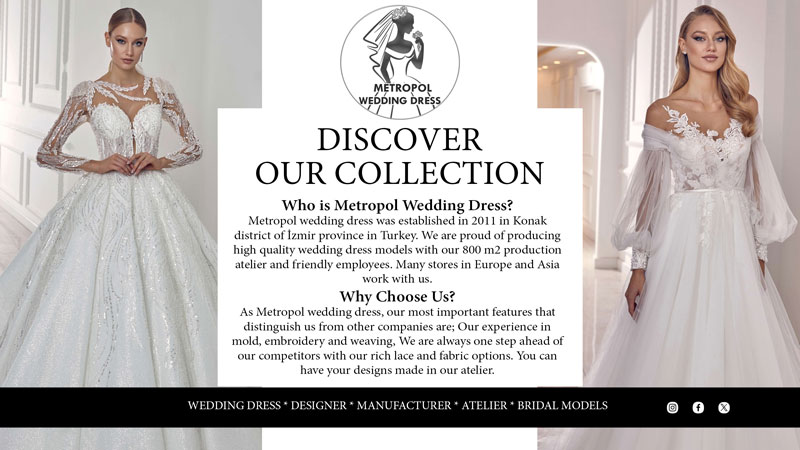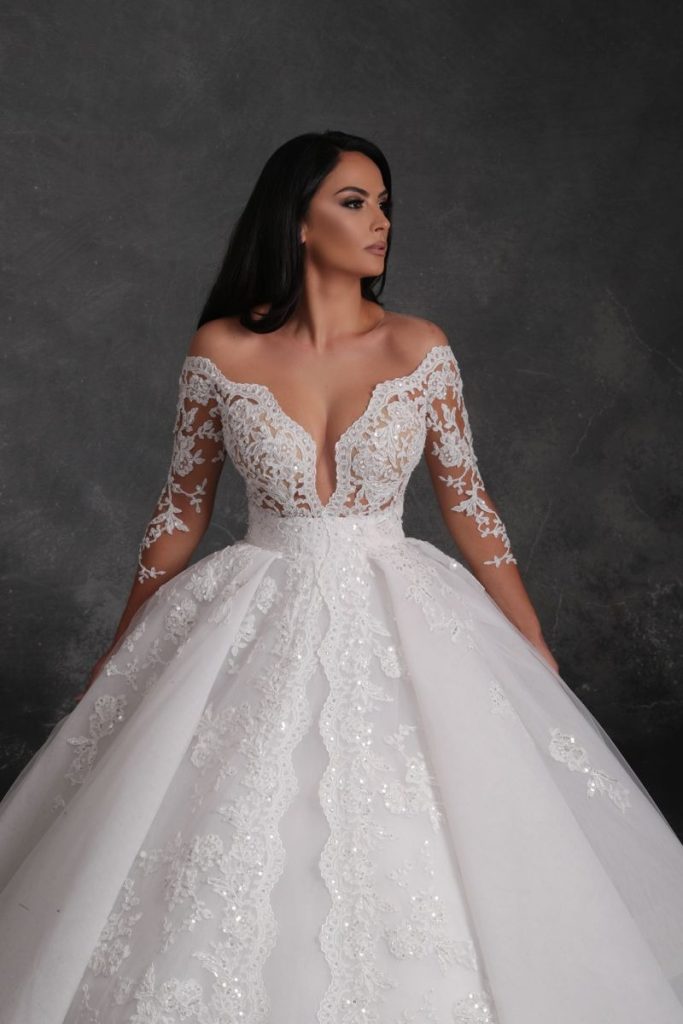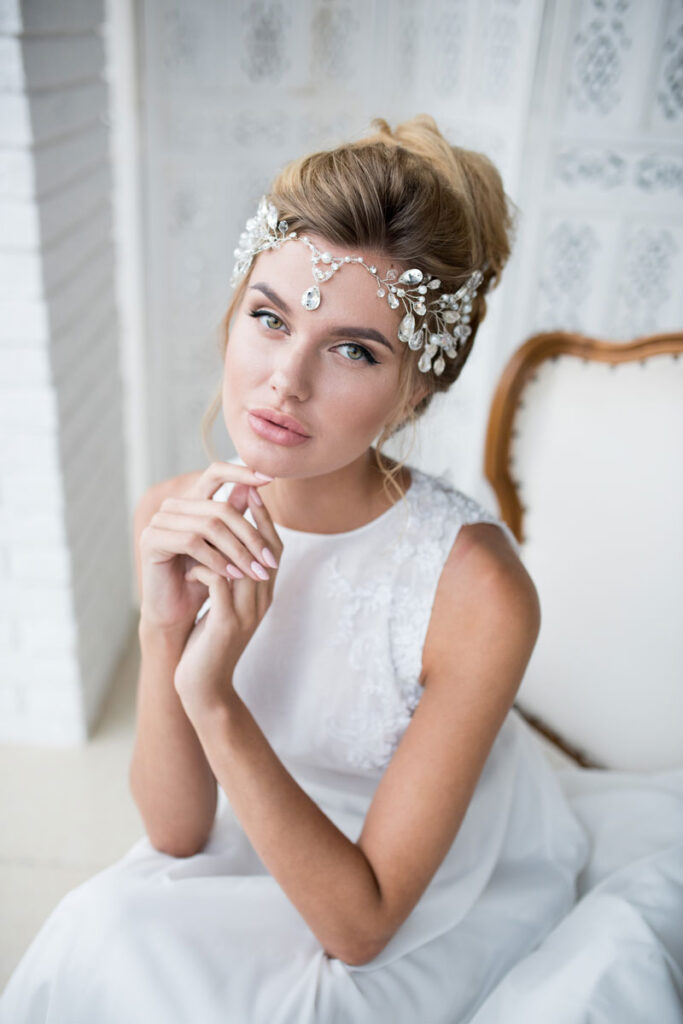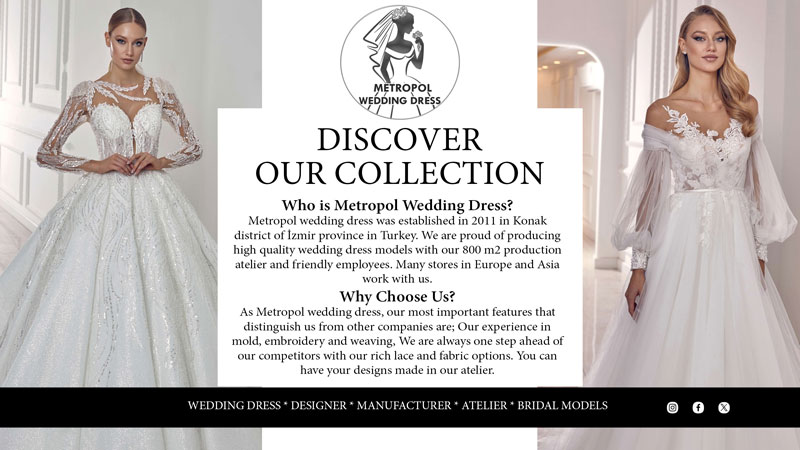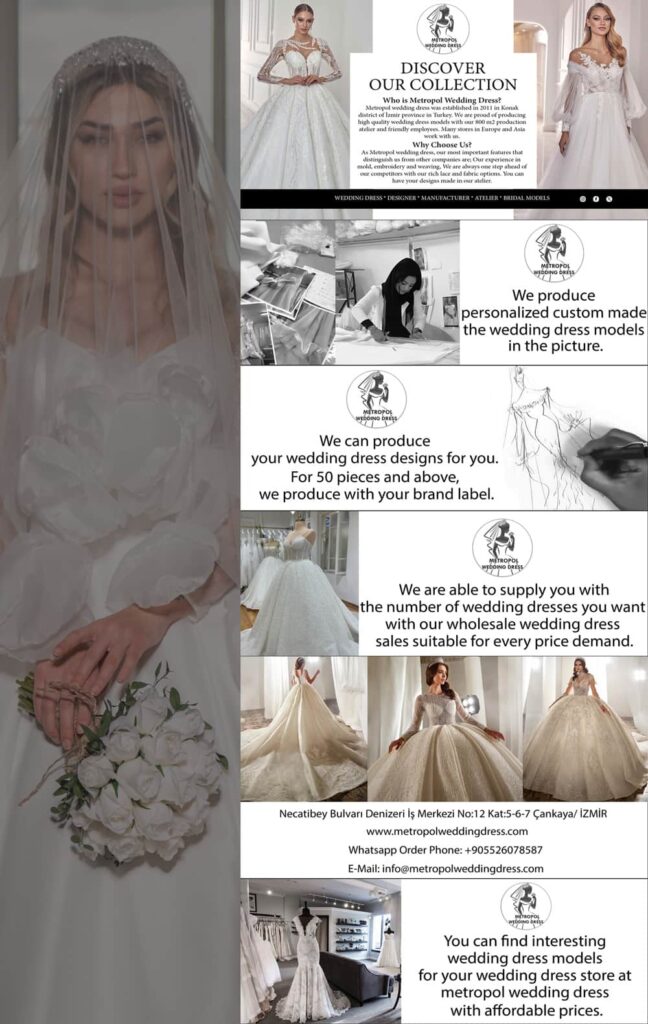
Nova Bella Models Best 3 Determining a good wedding budget depends on various factors including your financial situation, priorities, and expectations for your wedding day. Here are some steps to help you establish a wedding budget:
Assess Your Finances: Take a close look at your finances and determine how much you can realistically afford to spend on your wedding. Consider your savings, income, and any contributions from family members.
Discuss Priorities: Sit down with your partner and discuss your priorities for the wedding. Decide which elements are most important to you, whether it’s the venue, catering, entertainment, photography, or something else.
Research Costs: Research the average costs of wedding vendors and services in your area. This will give you a rough idea of how much you can expect to spend on each aspect of your wedding.
Create a Detailed Budget: Break down your wedding budget into categories such as venue, catering, attire, flowers, photography, entertainment, and miscellaneous expenses. Allocate a certain percentage of your overall budget to each category based on your priorities.
Account for Additional Expenses: Be sure to account for additional expenses such as taxes, gratuities, service fees, and unexpected costs that may arise during the planning process.
Be Realistic: Be realistic about what you can afford and don’t feel pressured to overspend. Remember that the most important thing is celebrating your love with family and friends, not the size of your budget.
Consider Alternatives: Look for ways to save money without sacrificing quality. Consider alternatives such as DIY projects, off-peak wedding dates, non-traditional venues, or opting for a smaller guest list.
Leave Room for Contingencies: It’s a good idea to leave some wiggle room in your budget for unexpected expenses or last-minute changes. Aim to set aside at least 5-10% of your total budget for contingencies.
Track Your Spending: Keep track of your spending throughout the planning process to ensure you stay within your budget. Consider using budgeting tools or spreadsheets to help you stay organized.
Communicate with Vendors: Be upfront with vendors about your budget and ask for itemized quotes to ensure you’re getting the best value for your money. Nova Bella
Ultimately, a good wedding budget is one that allows you to create the wedding of your dreams without putting undue financial strain on you and your partner. By carefully planning and prioritizing your expenses, you can create a budget that works for you and ensures a memorable and meaningful wedding day.

Nova Bella
Whether $100 is too cheap for a wedding depends on your expectations, priorities, and the specific circumstances of your wedding. In most cases, $100 is unlikely to cover the full cost of a traditional wedding ceremony and reception. However, there are ways to plan a meaningful and memorable wedding on a tight budget. Here are some considerations:
Scale Down the Guest List: One of the most effective ways to reduce wedding costs is to limit the number of guests. A smaller guest list means fewer expenses for catering, venue, and other related services.
Choose a Budget-Friendly Venue: Opt for a budget-friendly venue such as a public park, backyard, community center, or courthouse. These options often have lower rental fees compared to traditional wedding venues.
DIY Decor and Details: Get creative and DIY as much as possible when it comes to decorations, centerpieces, invitations, and other details. This can save a significant amount of money while adding a personal touch to your wedding.
Simplify the Ceremony and Reception: Keep your wedding ceremony and reception simple and intimate. Consider a casual buffet-style meal or a potluck dinner instead of a formal sit-down dinner. Skip extras like favors, elaborate floral arrangements, and expensive entertainment.
Shop Sales and Discounts: Look for sales, discounts, and clearance items when purchasing wedding attire, accessories, and decorations. You can often find great deals on wedding-related items by shopping off-season or online.
Ask for Help: Don’t be afraid to ask friends and family members for help with various aspects of your wedding. You might have talented friends who can provide services like photography, music, or baking at a reduced cost or as a gift. Nova Bella
Prioritize What Matters Most: Focus your budget on the elements of your wedding that matter most to you and your partner. Whether it’s the venue, food, photography, or attire, allocate your budget accordingly to ensure you get the most value out of your spending.
While it may be challenging to plan a wedding with a budget as low as $100, it’s certainly possible to create a meaningful and memorable celebration with careful planning, creativity, and resourcefulness. By prioritizing what’s important to you and being flexible with your expectations, you can have a beautiful wedding without breaking the bank.
Who buys the wedding dress
Traditionally, the bride’s family is responsible for purchasing the wedding dress. However, in modern times, the responsibility for buying the wedding dress can vary depending on individual circumstances, cultural traditions, and personal preferences. Here are some common scenarios:
Bride’s Family: In traditional wedding customs, the bride’s family typically covers the cost of the wedding dress as part of their contribution to the wedding expenses. This tradition stems from the idea that the bride’s family hosts and finances the wedding ceremony.
Bride and Groom: Many couples choose to split the cost of the wedding dress, along with other wedding expenses. This approach reflects a more modern and egalitarian view of wedding planning, where both partners share in the financial responsibilities of the wedding.
Bride Herself: Some brides prefer to purchase their own wedding dress, either because they have specific preferences or because they want to assert their independence. This may be the case if the bride has a particular style or designer in mind that differs from what her family or partner would choose.
Groom or Partner: In some cases, the groom or partner may offer to pay for the wedding dress as a gesture of love and support. This can be a meaningful way for the groom to contribute to the wedding preparations and show his commitment to the bride.
Ultimately, who pays for the wedding dress can vary depending on cultural traditions, financial circumstances, and personal preferences. It’s essential for couples to have open and honest conversations about their expectations and financial arrangements when it comes to wedding expenses, including the purchase of the wedding dress.
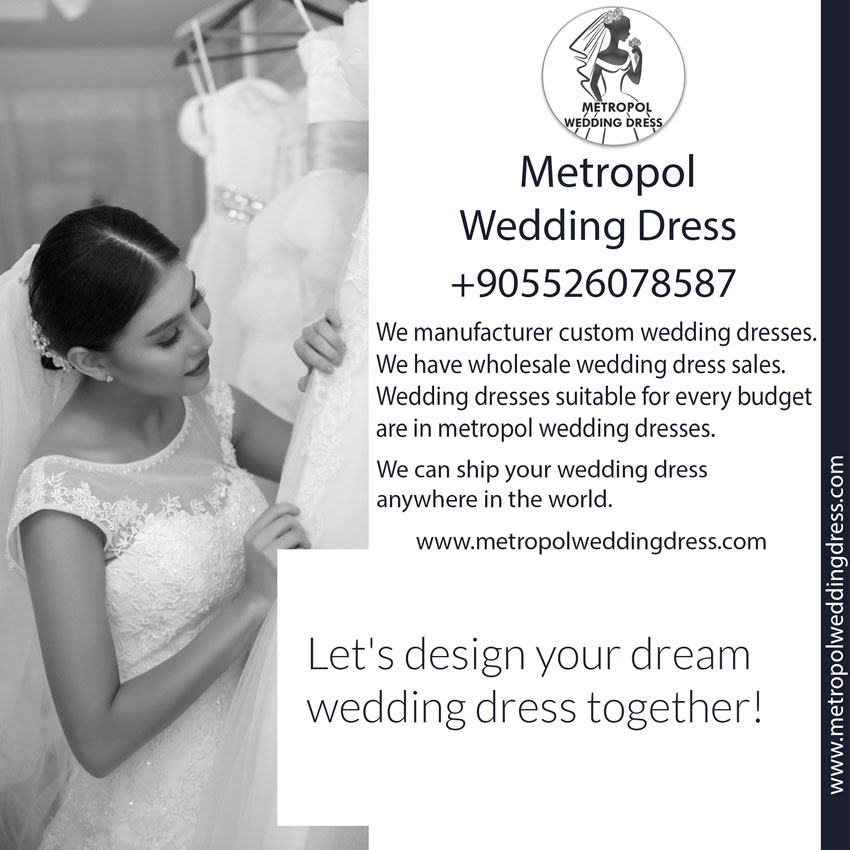
Milla Nova
Milla Nova is a renowned bridal fashion brand based in Ukraine, known for its exquisite wedding dresses that blend elegance, romance, and modern sophistication. Founded in 1999, Milla Nova has gained international acclaim for its stunning designs, luxurious fabrics, and impeccable craftsmanship.
The brand offers a diverse range of wedding dresses to suit different preferences and styles, from classic and timeless to modern and chic. Milla Nova’s dresses feature intricate lace detailing, sheer elements, luxurious embellishments, and a variety of silhouettes, allowing brides to find the perfect gown to complement their individual style and vision for their special day.
In addition to its bridal collections, Milla Nova also offers evening wear, bridesmaid dresses, and accessories to complete the bridal ensemble. With a commitment to quality, creativity, and innovation, Milla Nova continues to be a sought-after choice for brides around the world who are seeking a truly memorable and unforgettable wedding dress. Nova Bella
Is $100,000 too much for a wedding
Whether $100,000 is too much for a wedding depends on several factors including your financial situation, priorities, and personal preferences. While $100,000 may be a significant sum of money for some couples, it may be reasonable for others, especially if they have saved up for their dream wedding or have the means to afford it comfortably.
Here are some considerations when determining if $100,000 is too much for a wedding:
Budget Allocation: Consider how the $100,000 will be allocated across different aspects of the wedding such as venue, catering, attire, decorations, entertainment, photography, and miscellaneous expenses. Ensure that your budget aligns with your priorities and allows you to create the wedding of your dreams without overspending in areas that are less important to you.
Financial Impact: Evaluate the financial impact of spending $100,000 on your wedding. Consider how it will affect your savings, future goals, and financial stability as a couple. Be realistic about what you can afford and avoid putting yourselves in a precarious financial situation for the sake of one day.
Guest List and Expectations: Consider the size of your guest list and the expectations of your family and friends. A larger guest list may necessitate a higher budget to accommodate additional expenses such as catering, venue, and seating. Be mindful of your guests’ expectations and ensure that your budget allows you to host a memorable and enjoyable celebration for everyone involved.
Local Cost of Living: Keep in mind that the cost of weddings can vary greatly depending on your location and the local cost of living. $100,000 may go further in some areas than others, so consider how far your budget will stretch based on where you plan to host your wedding.
Personal Values: Consider your personal values and priorities when it comes to wedding spending. While some couples may prioritize a lavish celebration with all the bells and whistles, others may prefer a more intimate and budget-friendly affair. Choose a wedding budget that aligns with your values and allows you to celebrate your love in a way that feels meaningful to you.
Nova Wedding
Ultimately, the decision of whether $100,000 is too much for a wedding depends on your individual circumstances and what you’re comfortable with as a couple. It’s important to communicate openly and honestly about your expectations, priorities, and financial boundaries to ensure that you’re both on the same page when it comes to wedding planning.
What to look for when buying a wedding dress
When buying a wedding dress, there are several important factors to consider to ensure you find the perfect gown for your special day. Here’s what to look for:
Style and Silhouette: Consider the style and silhouette that flatters your body type and reflects your personal style. Whether you prefer a ball gown, A-line, mermaid, sheath, or fit-and-flare silhouette, choose a dress that accentuates your best features and makes you feel beautiful.
Fabric: Pay attention to the fabric of the dress, as it can greatly impact the overall look and feel. Choose a fabric that complements the season, venue, and theme of your wedding. Common wedding dress fabrics include satin, chiffon, lace, tulle, organza, and crepe.
Neckline: The neckline of the dress can dramatically affect your appearance and should complement your face shape and body proportions. Whether you prefer a sweetheart, V-neck, off-the-shoulder, halter, scoop, or illusion neckline, choose one that flatters your figure and enhances your bridal look.
Details and Embellishments: Consider the details and embellishments on the dress, such as beading, lace appliqués, embroidery, sequins, pearls, or crystals. Choose embellishments that reflect your personal style and add to the overall beauty and elegance of the dress.
Back Detail: Pay attention to the back detail of the dress, as it can make a stunning statement as you walk down the aisle and during the ceremony. Whether you prefer a low back, illusion lace, keyhole, or intricate button details, choose a back detail that adds visual interest and complements the overall design of the dress.
Train Length: Consider the length of the train, if any, on the dress. Trains come in various lengths, from sweeping to cathedral-length, and can add drama and elegance to your bridal ensemble. Choose a train length that suits the formality of your wedding and your personal preference.
Fit and Comfort: Ensure that the dress fits well and feels comfortable to wear, especially if you’ll be wearing it for an extended period. Pay attention to the bodice, waistline, and bust area to ensure a flattering and supportive fit. Consider the weight and structure of the dress to ensure ease of movement and comfort throughout the day. Nova Bella
Alterations: Keep in mind that most wedding dresses will require some degree of alterations to achieve the perfect fit. Factor in the cost and timeline for alterations when choosing your dress, and work with a reputable seamstress or tailor to make any necessary adjustments.
Budget: Set a budget for your wedding dress and stick to it. Consider additional costs such as alterations, accessories, and undergarments when budgeting for your dress. Shop around and explore different options to find a dress that fits within your budget without compromising on style or quality.
Emotional Connection: Trust your instincts and choose a dress that makes you feel confident, beautiful, and excited to walk down the aisle. Your wedding dress should reflect your personality, style, and vision for your special day, so go with the gown that speaks to your heart.
By considering these factors and taking your time to find the perfect dress, you’ll be sure to make a stunning statement on your wedding day and feel like the most beautiful bride imaginable.
Bridal İstanbul
“Bridal Istanbul” likely refers to bridal fashion events, boutiques, or designers located in Istanbul, Turkey. Istanbul is known for its rich culture, history, and vibrant fashion scene, making it a popular destination for brides-to-be seeking their dream wedding dress.
In Istanbul, you’ll find a wide range of bridal boutiques, designers, and bridal fashion events showcasing the latest trends and collections in wedding attire. These may include traditional Turkish wedding dresses, as well as modern and Western-inspired designs to suit diverse tastes and preferences.
If you’re planning to explore bridal options in Istanbul, here are some steps you can take:
- Research Boutiques and Designers: Look for bridal boutiques and designers in Istanbul that offer the styles and designs you’re interested in. You can search online, read reviews, and check social media platforms to find reputable options.
- Attend Bridal Events: Keep an eye out for bridal events and wedding fairs happening in Istanbul. These events often feature a wide range of bridal designers and boutiques showcasing their latest collections, providing you with the opportunity to explore different options in one place.
- Schedule Appointments: Once you’ve identified potential boutiques or designers, schedule appointments to visit their showrooms or studios. This will allow you to try on dresses, discuss customization options, and receive personalized assistance from bridal consultants.
- Consider Traditional Turkish Attire: If you’re interested in incorporating elements of Turkish culture into your wedding attire, consider exploring traditional Turkish wedding dresses or incorporating Turkish-inspired details into your gown.
- Budget and Timeline: Determine your budget and timeline for purchasing your wedding dress, and communicate this with the boutiques or designers you visit. This will help streamline the selection process and ensure you find a gown that meets your criteria.
- Bring Supportive Friends or Family: Consider bringing supportive friends or family members with you to your bridal appointments for feedback and moral support. Their input can be valuable as you make your decision.
Overall, exploring bridal options in Istanbul can be an exciting and memorable experience, offering you the opportunity to find the perfect wedding dress that reflects your style, personality, and cultural preferences.
Why do you need 2 wedding dresses
Having two wedding dresses is a personal choice and may be influenced by various factors. Here are some reasons why a bride might choose to have two wedding dresses:
Ceremony and Reception: Some brides opt for two dresses to differentiate between the ceremony and the reception. They may choose a more formal, traditional gown for the ceremony and then change into a lighter, more comfortable dress for dancing and mingling at the reception.
Style Change: If a bride has different tastes or styles, she may want to showcase both by wearing two dresses. For example, she might choose a classic ball gown for the ceremony and then change into a sleek, modern dress for the reception.
Cultural Traditions: In some cultures or traditions, it is customary for the bride to wear multiple dresses throughout the wedding day. This could include traditional attire for cultural ceremonies, a white wedding gown for the ceremony, and a colorful dress for the reception.
Destination Weddings: For destination weddings, brides may choose to have two dresses to suit the location and climate. They might wear a lightweight, flowy dress for a beach ceremony and then change into something more formal for a dinner reception.
Photoshoots: Brides who want to maximize their photo opportunities may opt for two dresses to create different looks for photography sessions. This allows them to capture a variety of images in different settings and lighting conditions.
Personal Preference: Ultimately, some brides simply want the flexibility and versatility of having two dresses on their wedding day. It’s a chance to express their personal style and feel like a princess in multiple stunning gowns.
While having two wedding dresses is not a necessity, it can add a touch of glamour and excitement to the wedding day. It’s a decision that should be based on the bride’s preferences, budget, and vision for her special day. Nova Bella
How do you know if you picked the right wedding dress
Choosing the right wedding dress is a significant decision, and it’s natural to have doubts or uncertainties along the way. Here are some signs that you’ve picked the right wedding dress:
You Feel Confident and Beautiful: When you put on the dress, you feel confident, beautiful, and like the best version of yourself. You can envision yourself walking down the aisle and saying “I do” in that dress.
You Can’t Stop Thinking About It: You find yourself constantly thinking about the dress and eagerly anticipating the next time you can wear it. It’s the one dress that stands out in your mind among all the others you’ve tried on.
It Matches Your Vision: The dress aligns with the vision you have for your wedding day. Whether you pictured yourself in a classic ball gown, a sleek sheath dress, or a bohemian lace gown, the dress reflects your personal style and the overall theme of your wedding.
You Receive Compliments: Friends, family, and even strangers compliment you when you try on the dress. Their reactions reinforce your own feelings of confidence and excitement about the dress.
It Fits Your Budget: The dress fits within your budget, and you feel comfortable with the price you’re paying for it. While price isn’t the sole determinant of whether a dress is right for you, it’s an important factor to consider.
It Flatters Your Figure: The dress complements your body shape and accentuates your best features. Whether you’re curvy, petite, tall, or somewhere in between, the dress enhances your natural silhouette and makes you feel comfortable and confident.
You Can Picture the Details: You can envision how the dress will look with accessories such as a veil, jewelry, or shoes. The dress provides a canvas for you to personalize and enhance your bridal look with the perfect finishing touches.
You Don’t Feel the Need to Keep Looking: Once you’ve found the right dress, you no longer feel the urge to keep searching or trying on more dresses. You’re satisfied with your choice and excited to move forward with the next steps of wedding planning.
Ultimately, the right wedding dress is one that makes you feel confident, beautiful, and excited to walk down the aisle on your special day. Trust your instincts, listen to your heart, and remember that the most important thing is to choose a dress that reflects your personal style and makes you feel like the bride you’ve always dreamed of being.
Luxury wedding dresses
Luxury wedding dresses are renowned for their exquisite craftsmanship, opulent fabrics, and attention to detail. These dresses are often designed by high-end bridal designers and fashion houses, catering to brides who desire the utmost in quality, sophistication, and exclusivity for their special day. Here are some characteristics commonly associated with luxury wedding dresses:
- High-Quality Fabrics: Luxury wedding dresses are crafted from the finest fabrics, such as silk, satin, chiffon, tulle, and organza. These fabrics drape beautifully and have a luxurious feel, adding to the overall elegance and allure of the gown.
- Intricate Embellishments: Luxury wedding dresses often feature intricate embellishments such as hand-appliquéd lace, delicate beadwork, Swarovski crystals, sequins, and embroidery. These embellishments are meticulously applied by skilled artisans, creating a stunning and visually captivating effect.
- Customization and Personalization: Many luxury bridal designers offer customization and personalization services, allowing brides to tailor their gown to their unique style and preferences. This may include custom fittings, alterations, and the option to add bespoke details or modifications to the design.
- Couture Construction: Luxury wedding dresses are typically crafted using couture construction techniques, with meticulous attention to fit, structure, and craftsmanship. Each gown is made to measure and hand-finished to perfection, ensuring a flawless and flattering silhouette.
- Designer Labels and Brand Prestige: Luxury wedding dresses are often associated with renowned bridal designers and fashion houses known for their prestige, creativity, and innovation in the industry. Brides may choose a luxury gown for the cachet of wearing a designer label and the assurance of exceptional quality and design.
- Timeless Elegance: Luxury wedding dresses exude timeless elegance and sophistication, transcending trends and fads. These gowns are designed to be cherished as heirlooms and passed down through generations, symbolizing the enduring love and commitment of marriage.
- Exclusive and Limited Editions: Some luxury bridal designers create exclusive and limited edition collections, offering brides the opportunity to wear a truly unique and one-of-a-kind gown on their wedding day. These dresses may feature rare fabrics, couture techniques, and signature design elements that set them apart from mass-produced styles.
Overall, luxury wedding dresses represent the pinnacle of bridal fashion, embodying the highest standards of craftsmanship, design, and luxury. Whether adorned with intricate lace, sparkling embellishments, or exquisite embroidery, these gowns are a testament to the bride’s discerning taste and desire for unparalleled elegance on her special day.
How to avoid wedding dress regret
Wedding dress regret can be a common concern for brides, but there are steps you can take to minimize the chances of experiencing it:
Do Your Research: Spend time researching different wedding dress styles, silhouettes, fabrics, and designers before you start shopping. Have a clear idea of what you like and don’t like to narrow down your options.
Set a Budget: Determine your budget for the wedding dress before you start shopping. Stick to your budget to avoid falling in love with a dress that’s beyond your price range and causing financial stress later on.
Start Early: Begin shopping for your wedding dress well in advance of your wedding date. This allows you plenty of time to explore different options, visit multiple bridal boutiques, and make an informed decision without feeling rushed.
Limit Opinions: While it’s natural to seek input from friends and family, too many opinions can lead to confusion and indecision. Limit the number of people you bring with you to dress appointments and focus on what feels right for you.
Trust Your Instincts: Pay attention to how you feel when trying on dresses. Trust your instincts and choose the dress that makes you feel confident, beautiful, and excited to walk down the aisle.
Take Photos and Videos: Take photos and videos of yourself in each dress you try on to help you remember how you felt in each one. Reviewing these images later can provide valuable perspective and help you make a decision.
Sleep on It: If you’re feeling unsure about a dress, don’t feel pressured to make a decision on the spot. Take some time to sleep on it and revisit the dress the next day with a fresh perspective.
Consider Alterations: Keep in mind that most wedding dresses will require some degree of alterations to achieve the perfect fit. Factor in the cost and timeline for alterations when choosing your dress, and be open to making adjustments to ensure it’s exactly what you envisioned.
Focus on What Matters: Remember that the most important thing is marrying the love of your life, not the dress you wear. Keep things in perspective and prioritize your happiness and comfort above all else.
Avoid Overexposure: Once you’ve purchased your dress, try to avoid looking at other dresses online or in stores. Constantly comparing your dress to others can lead to unnecessary doubt and regret.
By taking these steps and staying true to yourself, you can minimize the chances of experiencing wedding dress regret and feel confident in your decision on your special day.
How many dresses do most brides try on
The number of wedding dresses that most brides try on can vary widely depending on individual preferences, timelines, and circumstances. However, on average, brides tend to try on between 4 to 7 dresses before finding the one that feels perfect for them.
Some brides may find their dream dress in the first few dresses they try on, while others may need to explore a larger selection to narrow down their options and find the right fit, style, and design. Factors such as the size of the bridal boutique, the variety of dresses available, and the level of customization desired can also influence the number of dresses a bride tries on.
Ultimately, the most important thing is to take your time, trust your instincts, and choose a dress that makes you feel confident, beautiful, and excited to walk down the aisle on your wedding day. Whether it takes trying on a few dresses or several, the goal is to find the perfect dress that reflects your personal style and makes you feel like the best version of yourself. Nova Bella
Weddies bride wear
Do brides wear their dress all night
Whether a bride wears her wedding dress all night depends on personal preference and the logistics of the wedding day. Here are some factors to consider:
Comfort: Wedding dresses are often beautiful but can be heavy or restrictive, especially if they have long trains or intricate detailing. Some brides choose to change into a more comfortable or practical outfit for the reception to ensure they can move, dance, and socialize with ease.
Venue and Activities: The choice of whether to wear the wedding dress all night may depend on the venue and the activities planned for the reception. For example, if the reception is held in a formal ballroom with a sit-down dinner and formal dances, the bride may opt to keep her dress on. However, if the reception includes outdoor activities, dancing, or other more relaxed elements, the bride may choose to change into a different outfit.
Photography: Brides often wear their wedding dress for the majority of the day to capture photos during the ceremony, formal portraits, and other key moments. However, some brides may choose to change into a different outfit for the later part of the reception to ensure they can enjoy the festivities without worrying about damaging their dress. Nova Bella
Cultural and Traditions: In some cultures or traditions, it is customary for the bride to wear her wedding dress throughout the entire wedding celebration, from the ceremony to the end of the reception. In other cultures, brides may change into a different outfit for the reception or have multiple dresses for different parts of the day.
Ultimately, whether a bride wears her wedding dress all night is a personal decision based on comfort, logistics, and cultural or traditional considerations. The most important thing is for the bride to feel comfortable, confident, and beautiful throughout her wedding day, whether she chooses to wear her dress all night or changes into a different outfit for the reception.
Which color dress is best for bride
The best color for a bride’s dress depends on personal preference, cultural traditions, and the overall theme of the wedding. Traditionally, white has been the most popular color for wedding dresses in Western cultures, symbolizing purity, innocence, and new beginnings. However, there are many other colors to consider, and the choice ultimately depends on what feels right for the bride and the vision for the wedding day. Here are some popular options:
White: Classic and timeless, white is the traditional choice for wedding dresses in many Western cultures. It comes in various shades, from bright white to ivory, champagne, and off-white.
Ivory: Ivory is a slightly warmer shade than pure white and complements a variety of skin tones. It’s a popular choice for brides who want a soft, romantic look without straying too far from tradition.
Champagne: Champagne-colored dresses have a subtle hint of warmth and often feature golden undertones. This color adds a touch of vintage elegance and pairs well with both traditional and modern wedding themes.
Blush: Blush or pale pink wedding dresses have become increasingly popular in recent years. Soft and romantic, blush dresses add a delicate, feminine touch to the bridal ensemble and are perfect for brides who want a hint of color without straying too far from tradition.
Pastels: Pastel-colored dresses in shades of blue, lavender, mint green, or pale yellow offer a unique and whimsical twist on traditional bridal attire. These colors are perfect for brides who want to make a bold statement and infuse their wedding with personality and style.
Bold Colors: Some brides choose to wear bold-colored dresses in shades of red, black, navy, or even emerald green for a dramatic and fashion-forward look. These colors are perfect for unconventional brides who want to stand out and make a statement on their wedding day.
Ultimately, the best color for a bride’s dress is one that reflects her personal style, complements her skin tone, and aligns with the overall theme and vibe of the wedding. Whether it’s traditional white, romantic ivory, or a bold statement color, the most important thing is for the bride to feel beautiful, confident, and comfortable in her chosen dress.

